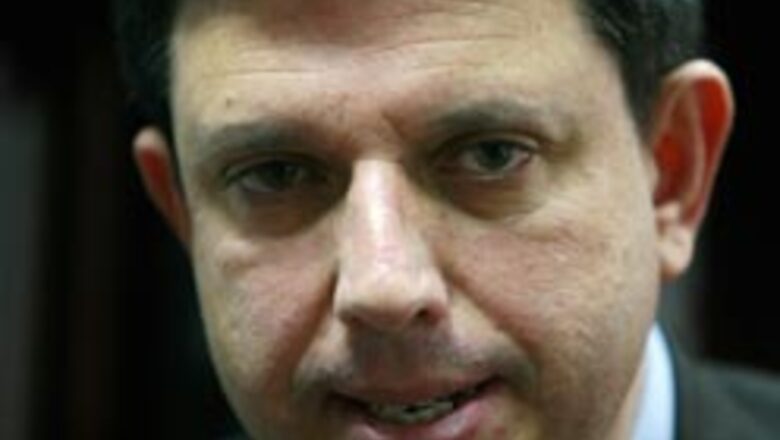
views
New Delhi: India is violating the human rights of its gay minority and undermining a battle against HIV/AIDS by holding on to a “puritan” colonial-era law that bans homosexuality, the UNAIDS country chief said on Thursday.
Section 377 of the Indian Penal Code, which carries a jail term of 10 years for men having sex with men (MSM), is part of India's "head in the sand" approach to gays, said Denis Broun.
"These people are discriminated against just because of their sexual preference, for no other reason," Broun said on the eve of World AIDS day.
"It violates their human rights." India has the largest number of people living with HIV/AIDS at 5.7 million, according to UNAIDS, and 85 percent of infections are transmitted through sex.
But UNAIDS says the law—enacted in 1861 by British rulers—forces homosexuals underground, making it difficult to accurately estimate how much sexual transmission is through MSM and the extent of the epidemic among gay men.
"People are being harassed by Section 377 and men having sex with men do not come forward and receive adequate prevention information," Broun said. Most Indian men who had sex with men were bisexual and risked infecting their female partners, he added.
The state-run National AIDS Control Organisation (NACO) estimates there are at least 2.5 million men who have sex with men in India and terms them as a high-risk group, together with injecting drug users and prostitutes.
While it says the real number is likely to be much higher, UNAIDS said the number could be anywhere between five and 15 million.
Clueless on AIDS
A survey released by NACO on Thursday revealed that 20 years after the first AIDS case, slightly over 15 percent of Indians had not heard of HIV. It said more than 42 percent were unaware of two important ways of preventing HIV transmission.
PAGE_BREAK
The Behaviour Surveillance Survey also showed that only 37.8 percent of female sex workers had tested themselves for HIV. "Given the fact it is 20 years into the epidemic and we have spent hundreds of millions of dollars in prevention activities, this is not a good reflection on our efforts," said Anjali Gopalan, head of Naz Foundation India, an anti-AIDS group.
Stigma prevents many Indians from discussing sex and HIV openly, hampering the fight against the virus. "Social inhibitions about sexual matters, especially in remote rural areas, make it a little more difficult to encourage public discourse," said Congress President Sonia Gandhi after opening a government clinic to provide anti-retroviral (ARV) drugs to children.
India plans to double the number of children receiving free paediatric ARVs to 3,600 immediately, aided by funding from the Clinton Foundation and the French government, and plans to raise that number to 10,000 in the coming months.
India has an estimated 202,000 children infected by HIV, with many of them in urgent need of ARV treatment. Globally, 2.3 million children are living with the virus.



















Comments
0 comment